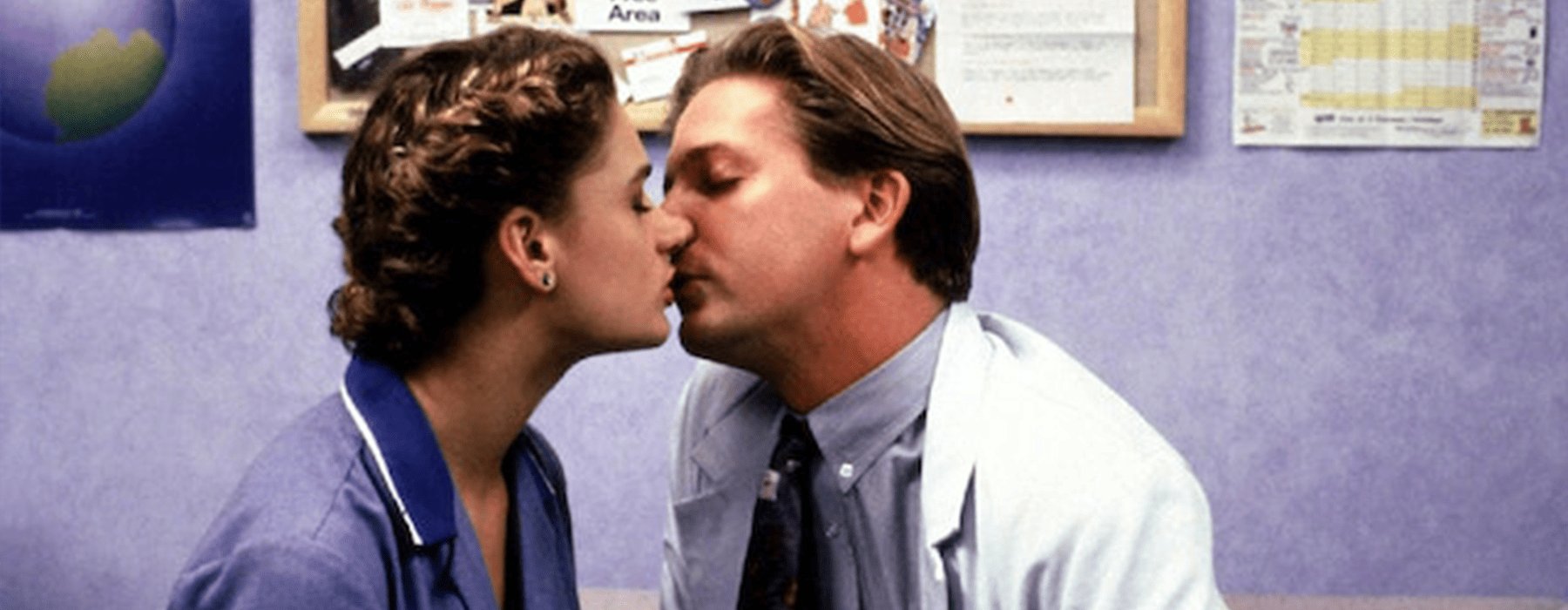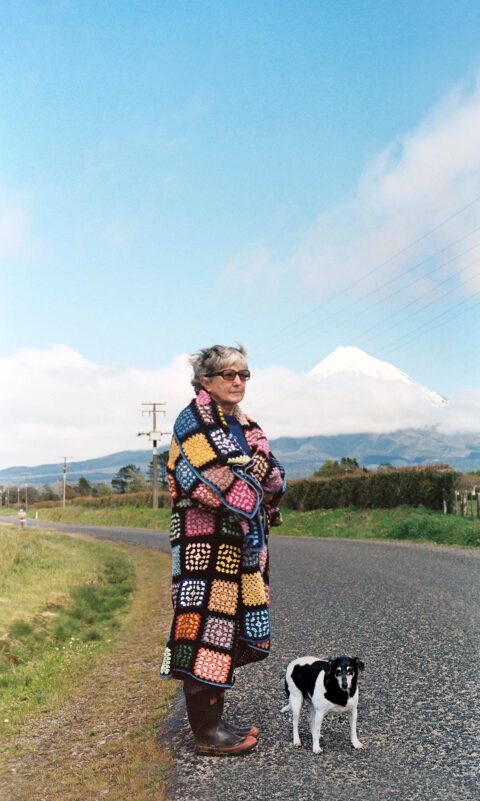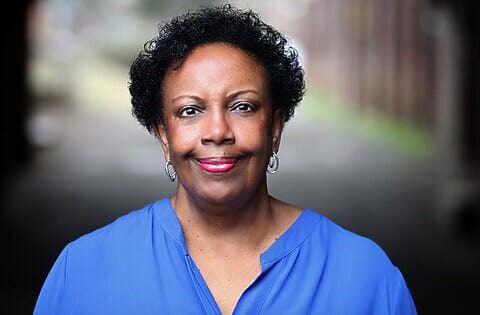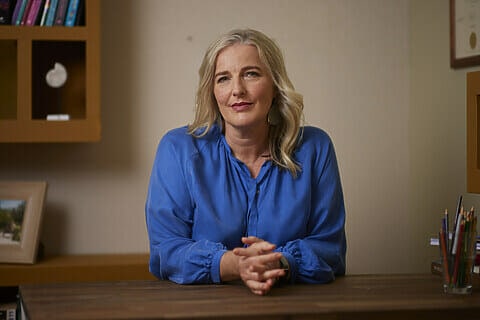Aotearoa’s leading intimacy coordinator Jennifer Ward-Lealand and actors Ava Diakhaby, Kalyani Nagarajan and Emma Jenkins-Purro weigh in on the practice’s increasing presence throughout our television and film industry.
Albeit with a mild bout of Covid-19 (“I’ve managed to avoid it for two years!”), actor and intimacy coordinator Jennifer Ward-Lealand is all too happy to share her gratitude that intimacy coordination is being taken seriously on Aotearoa’s shores.
“The size of our population means we’re quite nimble, we take on change quickly and I’ve seen that happen in the industry in regards to intimacy coordination,” she says.
It all started in 2015, when Equity New Zealand held a meeting. It was for actors, by actors, to discuss sex and nudity on the stage and screen. Jennifer remembers it was absolutely packed, a testament to how important the kaupapa was for Kiwi actors at the time. It was here that union members put together the first sex and nudity guidelines for sets based off nothing but their own experiences as performers.
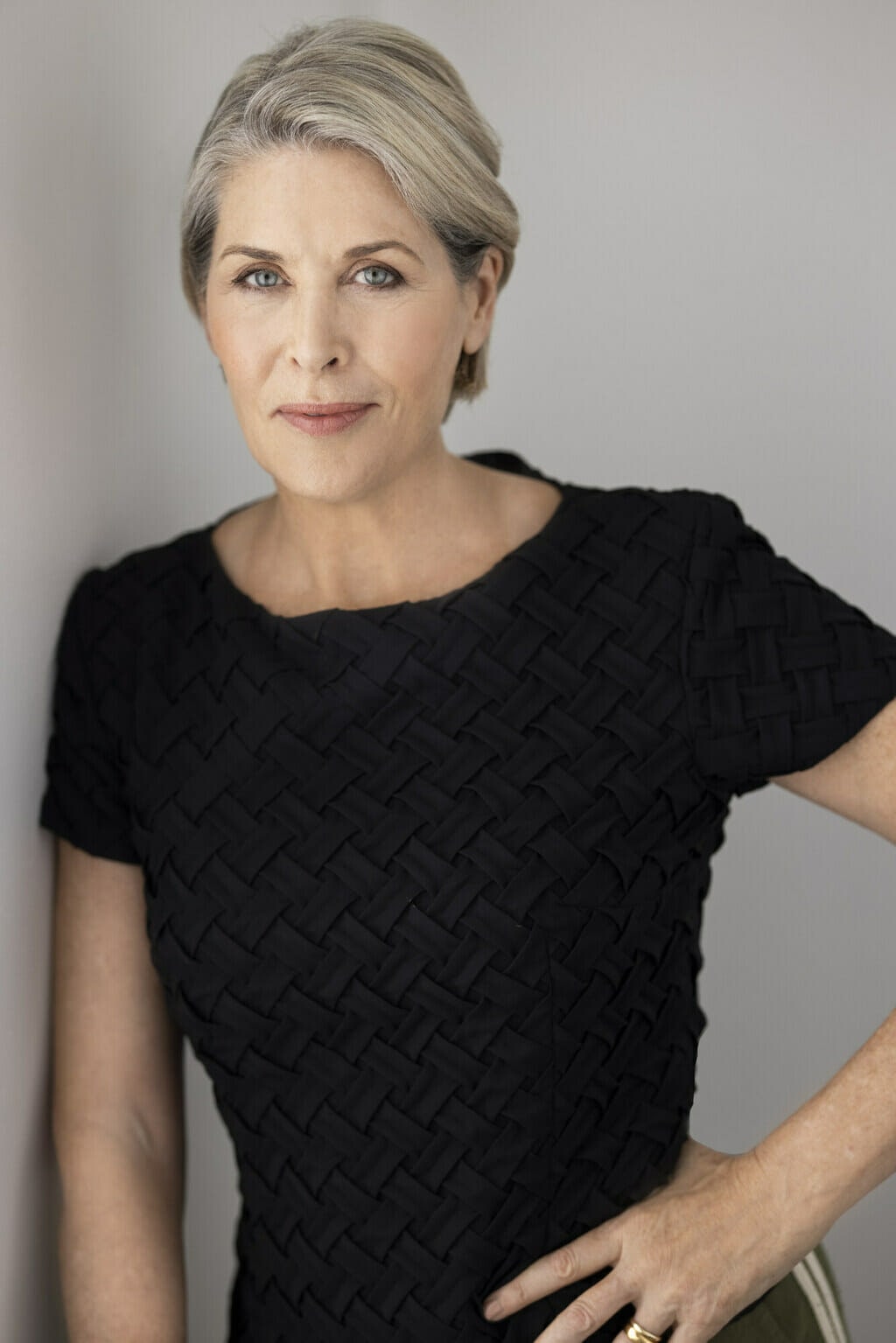
The equity guidelines took around a year and a half to put together and now, in their 2020 edition, suggest an intimacy coordinator for situations including power imbalance, experience imbalance or any kind of work with minors. One of the screen guidelines also suggests pre-production measures such as scheduling intimate scenes at least 48 hours in advance and closing the set to all but essential crew for the duration.
“It’s not like we need to be there for a kiss on the cheek,” she says. “There is perhaps a perception that this is going to sanitise the work, and we find it to be exactly the opposite. It gives actors so much more creative freedom and fun because it is 100 percent consented to.”
According to the Equity NZ Guidelines 2020, an intimacy coordinator will undertake a risk assessment of the scenes and facilitate discussions with directors and producers around the performers’ safety needs. Other actions include ensuring a performer does not independently override agreed choreography or viewing playback for any “accidental” exposure not agreed to. The guidelines stress the benefit of having an informed third party present – something an intimacy coordinator precisely brings.
In 2017, now-acclaimed intimacy coordinator Ita O’Brien (Sex Education, Conversations with Friends) reached out to Jennifer.
“Ita said she looked everywhere and Equity New Zealand is the only place that had any guidelines that speak directly to actors and wasn’t in ‘contract speak’,” Jennifer says.
Ita asked to use some of these guidelines and the two became quick friends. A short while later, she travelled to New Zealand to teach an intimacy coordination workshop that sparked Jennifer’s adoration for the craft. It was here that she thought, “If we can make one particularly anxiety-inducing side of our practice better, then halle-bloody-lujah.”
Intimacy coordination has now trickled into Aotearoa’s drama schools, including Toi Whakaari: NZ Drama School, South Seas and The Actors’ Program. This movement from the ground up allows actors to coordinate themselves on sets and productions when professional help might not be available. Having this baseline knowledge can give graduate actors greater confidence to express their safety needs to directors for an intimate scene; for example, they may request a closed set or specific choreography.
“Actors are now coming out into the industry with an expectation that there is a professional process available to them,” Jennifer says. “And if there isn’t, they would personally know what to do in terms of consent.”
Thinking back to when intimate scenes were not professionally dealt with is hard for Jennifer and even harder for the actors who experienced it. “I’ve heard stories that would make your hair curl,” she says. “What often comes up in these training sessions is a realisation from the performer that they have never been asked for consent before.
“That can make them feel quite wobbly, so I make sure that it’s acknowledged that what happened to them wasn’t safe, wasn’t professional and that this will not be the same.”
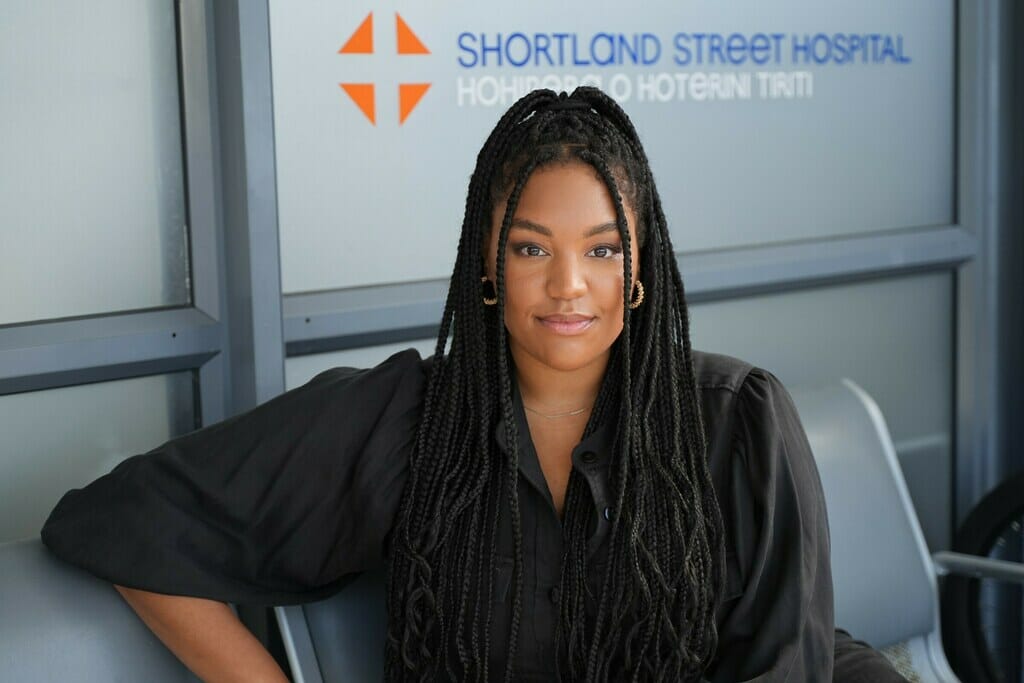
Ava Diakhaby, Shortland Street
Ava studied Performing and Screen Arts at Unitec before embarking on an impressive run of TV shows including Netflix’s Sweet Tooth, TVNZ’s Funny Girls and Network 10’s My Life is Murder. She is also set to appear in James Cameron’s upcoming film, Avatar 2, which will be released at the end of this year.
I can’t remember the exact moment I first heard of intimacy coordination. My first experience with using it as an actor was in 2020 on Creamerie. Most recently, during my time on Shortland Street, I worked with intimacy coordinator Claire Dougan for scenes of an intimate nature. This could be as simple as a kiss or sharing a post-coital glow to imitating nudity and simulated sex. It’s like adding a tiny dance alongside dialogue that happens to involve lips and specific touching.
One of my favourite things to remember is that the moments before the kiss, or the moments in between the touch, are the magic moments. Because you and your scene partner know “the little dance”, it gives you both the freedom to find the magic moments that would then spark the reactions and influence the character.
My hope is that intimacy coordination will be implemented in projects of a smaller budget and all the way through to school productions. It is important, especially for women in this industry, that actors are never made to feel uncomfortable or like they have to participate in a specific way. Another lesson I have learnt with intimacy coordination is that no matter what boundaries actors have there is always a way to have people feel comfortable and still portray realistic intimacy.
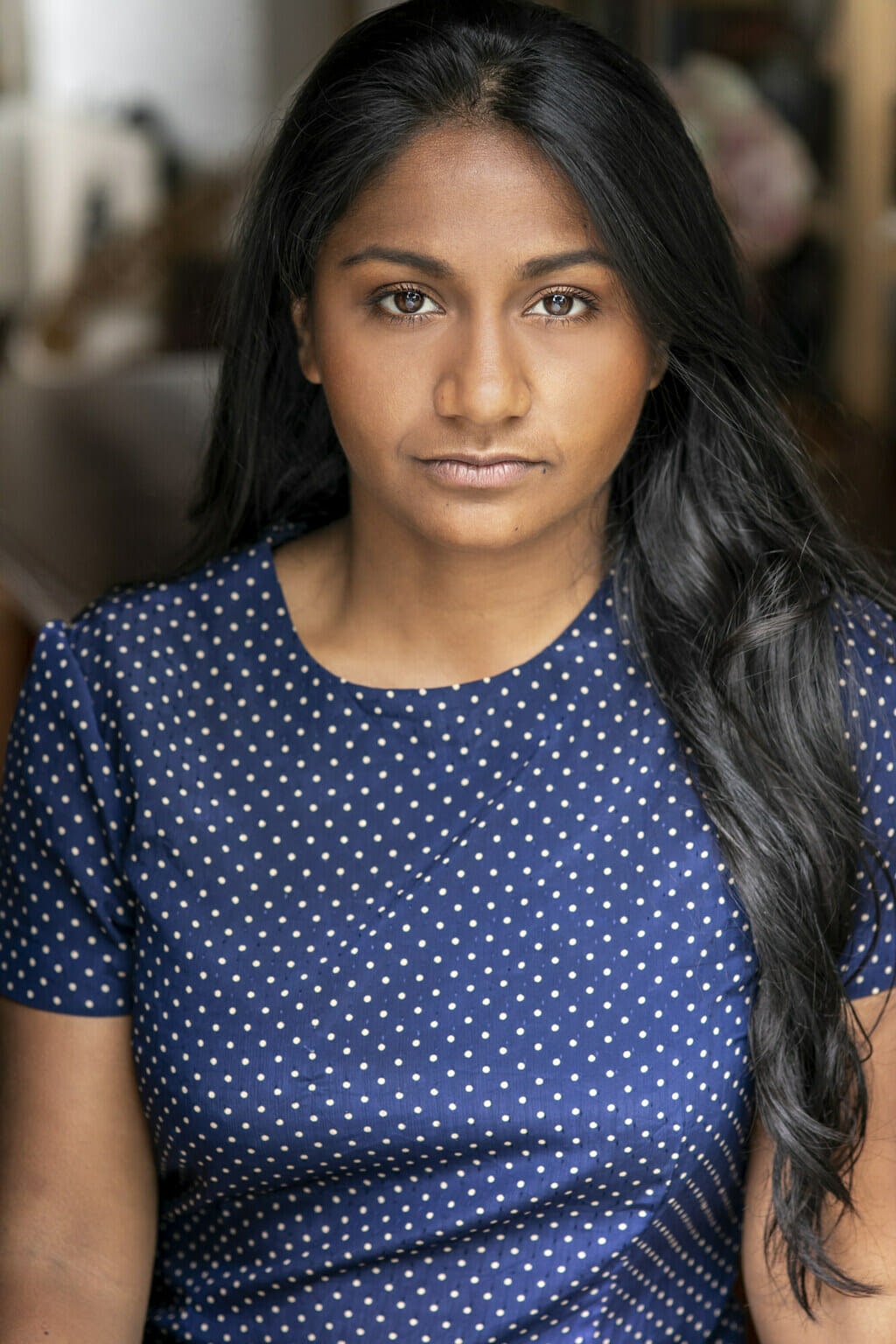
Kalyani Nagarajan, Raised by Refugees
Kalyani is a graduate of Toi Whakaari: NZ Drama School and has worked extensively in Aotearoa’s theatre scene, most recently leading Indian Ink’s tour of Mrs Krishnan’s Party. She stars in Pax Assadi’s latest TV series, Raised by Refugees (currently streaming on Neon), and is working to make a feature film she hopes will demystify the model minority stereotype.
Honestly, the first time I heard the term “intimacy coordinator” was not long ago, which is not ideal! I wish this had been practiced more when I was a younger performer. However, I have seen them at work and it is great to witness the wellbeing of creatives being put to the forefront. When we feel unsafe or uncomfortable the work reflects that and it can ruin the process.
I am not the most intimate person and being intimate in theatre and on screen still scares me. Having someone who is solely in charge of making that moment safe and also meaningful rather than just being another take we have to do at the last minute gives me hope for the industry.
My goal is South Asian representation on screen. Full. Stop. I want to reflect culture and race in more provocative ways. Not always as the comic relief or the upholding citizen.
I love acting, but being an actor in Aotearoa is hard! There aren’t that many roles out there and I am shifting perspective to attempt to be someone who can provide roles to emerging and established South Asian creatives.
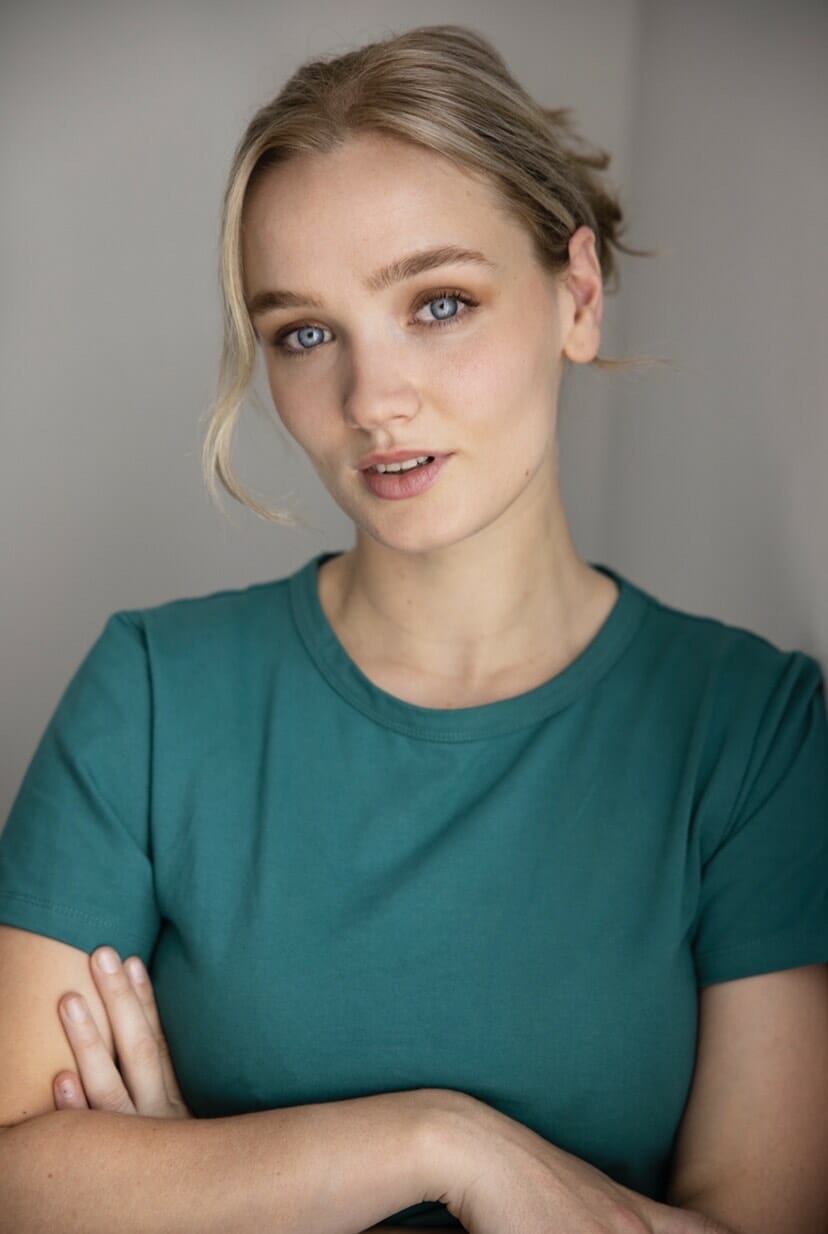
Emma Jenkins-Purro, The Brokenwood Mysteries
After graduating from Unitec’s Screen Arts programme in 2019, Emma has appeared in TVNZ’s The Brokenwood Mysteries and starred in the Bygone short films. With an A24 film coming out this year and current work on a show for NBC, Emma’s career is ramping up.
I first heard about intimacy coordinators in my final year of university. Our voice coach, Alex Whitham, was a big advocate for it. She introduced it to us using a scene from Titanic. When I heard about it I was like, “Wow, I can’t believe we haven’t been doing this all along”. You have stunt coordinators and so much health and safety around that kind of stuff, so why not for intimate scenes, too.
This rise in intimacy coordination brings me some comfort for when I head over to the States later this year. I think they are probably far more intense on following those protocols because it’s a more litigious country. In my experience, everyone in the New Zealand industry knows everyone and if a protocol isn’t followed precisely, it’s not a huge deal because you trust that everyone is looking out for you. Maybe this is a bit naive and something I’ll have to be savvy about overseas.
PHOTOGRAPHY: SUPPLIED

